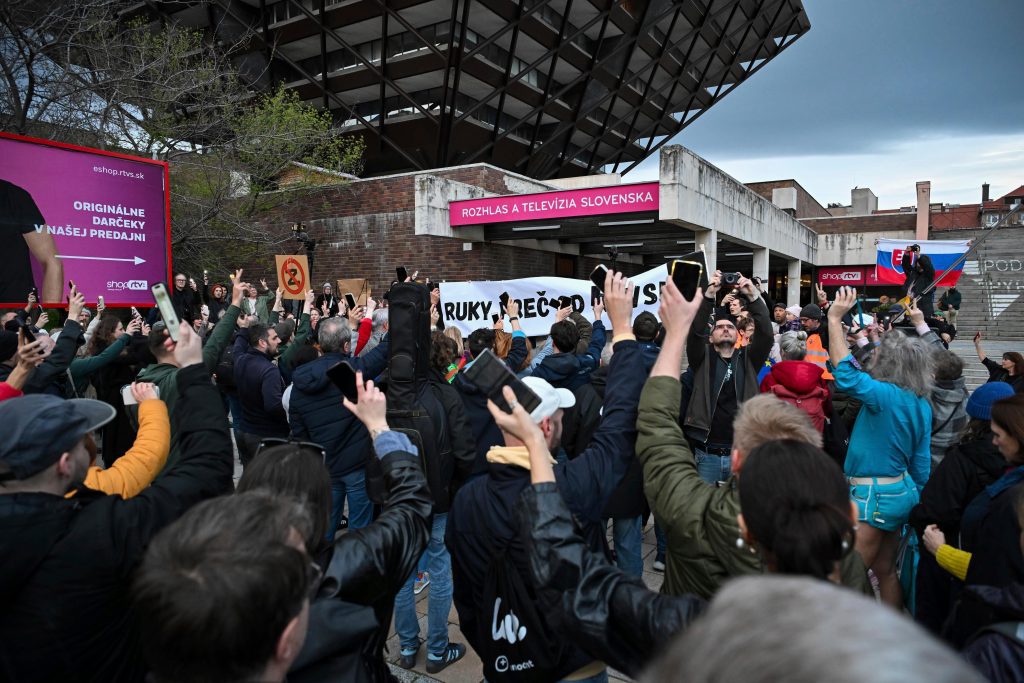In Slovakia, demonstrators created a human chain around the public TV and radio building on Wednesday to express their anger at the government's plan to take it over. The prime minister, who is pro-Russia and populist, has labeled several private media outlets as his enemies, sparking the protest.
The takeover plan was created by Culture Minister Martina Šimkovičová, who is a member of an ultra-nationalist party in the coalition government and has been associated with an internet TV channel known for spreading false information.
The plan has been criticized by President Zuzana Čaputová, opposition parties, local journalists, international media organizations, the European Commission, and others. They warn that the government would obtain complete control of public broadcasting. Slovak journalists see the plan as an assault on all independent media.
The recent protest is the latest expression of opposition to the policies of Prime Minister Robert Fico, who has a history of attacking journalists. Critics fear that Slovakia, under his leadership, will shift away from its pro-Western stance and move in the direction of Hungary under Prime Minister Viktor Orbán.
Šimkovičová argues that taking control of public media is necessary because she believes the current broadcaster is biased, favoring only mainstream opinions and censoring others. The broadcaster denies this allegation.
According to her plan, the existing public radio and television, known as RTVS, would be replaced by a new organization. A new council with seven members, nominated by the government and parliament, would choose the broadcaster’s director and have the authority to dismiss the director without providing a reason.
The current broadcaster’s director was elected by parliament and is set to hold office until 2027.
Hundreds of protesters displayed a banner reading “HANDS OFF RTVS!” and voiced support for local journalists by chanting, “We’re by your side.” A similar protest earlier this month drew thousands of participants.
Fico returned to power for the fourth time last year after his leftist party Smer (Direction) secured victory in the parliamentary election with a pro-Russian, anti-American platform.









